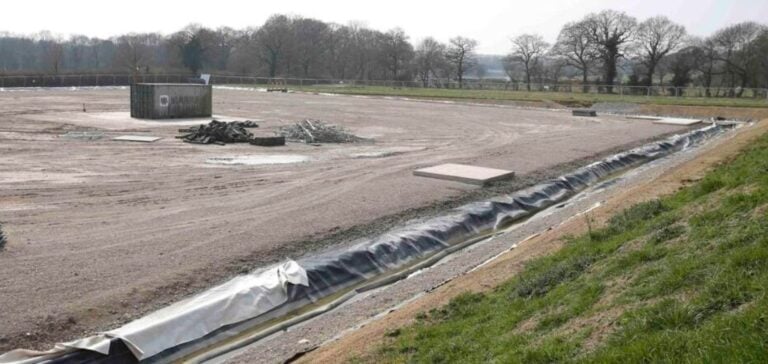The UK Supreme Court recently ruled in favor of opponents of an oil drilling project at Horse Hill in southern England. This decision follows an appeal lodged by Sarah Finch, on behalf of the Weald Action Group, against the authorization granted by Surrey’s local authorities in 2019. Opponents pointed out that the company’s environmental assessment had not taken into account the greenhouse gas emissions resulting from the consumption of the oil produced. Despite successive rejections of her appeal by the High Court and the Court of Appeal, the plaintiff persisted until she won her case with the UK’s highest court. The Supreme Court ruled that the initial authorization was “illegal”, as it failed to include emissions induced by oil consumption in the environmental impact assessment.
Implications for future projects
The Horse Hill Developments project aimed to extract 3.3 million tonnes of oil over a 20-year period. The Supreme Court’s decision states that the purpose of an environmental impact assessment is to ensure that decisions are made in an informed manner, aware of the likely environmental consequences. This decision is seen as a precedent by environmental organizations such as Friends of the Earth and Greenpeace UK, who see it as a significant victory. According to Friends of the Earth, this decision could make it more difficult to obtain permits for new fossil fuel projects. Greenpeace UK described this as a huge victory and highlighted its potential to influence other projects, such as the development of the Rosebank oil field in the North Sea.
A potential impact on energy policies
The consequences of this ruling could be far-reaching for future energy projects in the UK and potentially elsewhere. Environmental organizations hope that this decision will prompt a reassessment of fossil fuel production policies and promote more sustainable alternatives. From now on, companies will have to ensure that their environmental impact assessments cover all aspects of greenhouse gas emissions, including those linked to the final consumption of products. It could also encourage a faster transition to renewable energies, by making fossil fuel projects less economically and legally viable. This decision marks a turning point in the way environmental impacts are taken into account in industrial projects, by placing climate considerations at the heart of regulatory assessments. Players in the energy sector will have to adapt their strategies to meet these new requirements, or risk seeing their projects blocked by the courts.
The fight to protect the environment is thus strengthened by this judicial precedent, offering a new tool for planet defenders to challenge unsustainable energy projects. This development could also influence legislation in other countries, reinforcing global environmental standards.






















